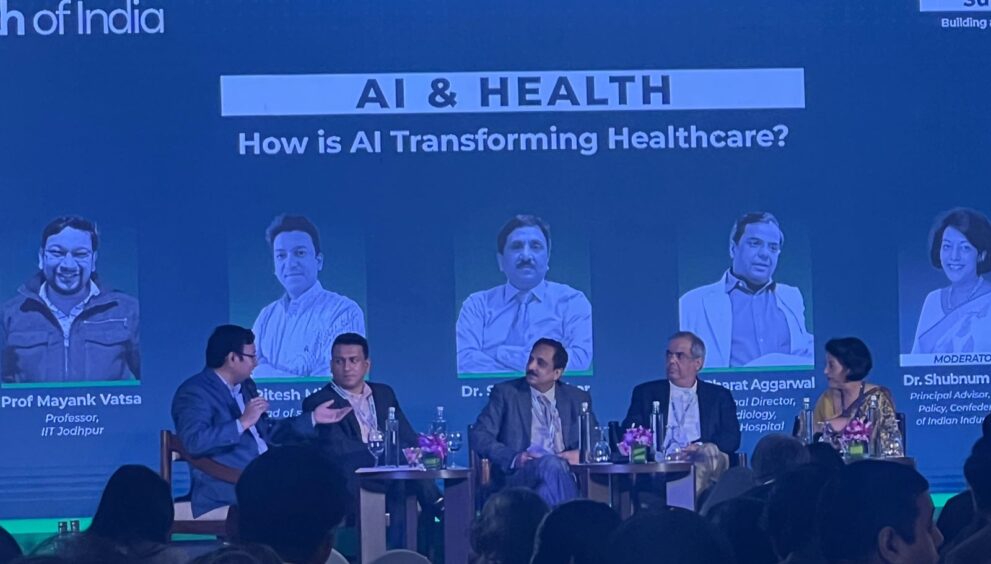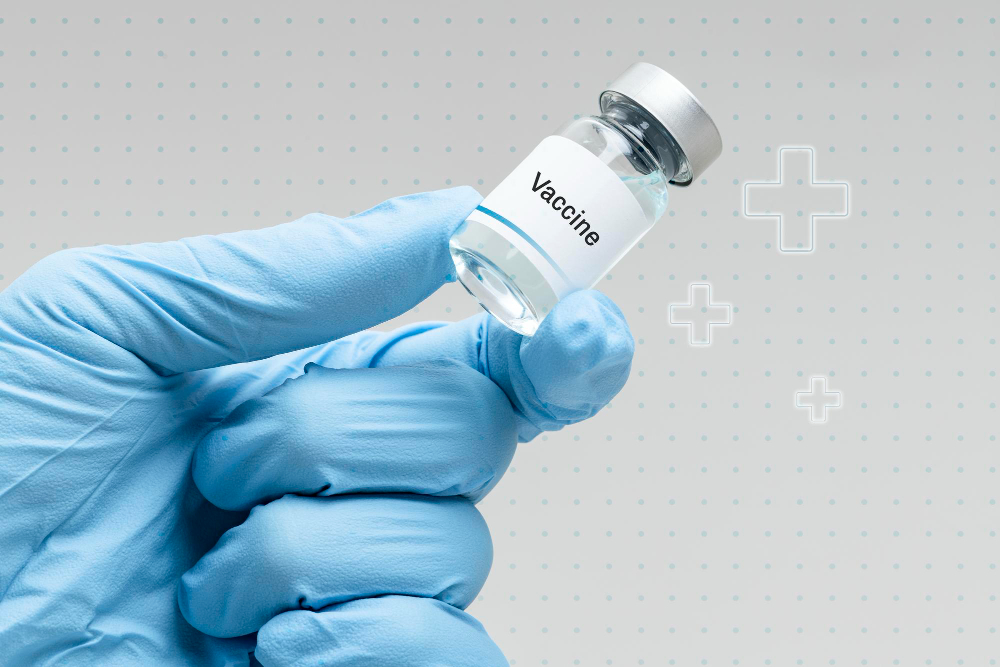New Delhi: At the Health of India Summit 2024 in New Delhi, experts highlighted the transformative potential of AI in revolutionizing Indian healthcare, from early tuberculosis detection in rural areas to advanced cancer prediction models, while emphasizing the need for ethical frameworks, accurate data, and patient-centric integration.
The session, titled “AI & Health: How AI is Transforming Healthcare?”, explored AI’s ability to revolutionize diagnostics, treatment, and patient care, focusing on accessibility, affordability, and efficiency within the Indian healthcare system.
Moderated by Dr Shubnum Singh, Principal Advisor for Health Policy at the Confederation of Indian Industry (CII), the panel featured experts, including Ritesh Mittal, Head of Strategy & Customer Success at HEAPS.ai; Dr Sushil K Meher, IT Head at AIIMS; Dr Bharat Aggarwal, Principal Director of Radiology at Max Hospital; and Dr Mayank Vatsa, Professor of Computer Science at the Indian Institute of Technology (IIT) Jodhpur.
Ritesh Mittal highlighted its applications in automating repetitive tasks such as imaging, pathology, and radiology. He emphasized the shift from hospital-based care to home-based solutions like e-ICUs and remote monitoring, as well as AI’s role in supporting clinical decision-making.
“AI-powered latent TB screening in tier-3 cities as a groundbreaking use case, enabling early detection of tuberculosis in a country where 40% of the population carries latent infections”, Mittal said, stressing the importance of moving beyond “low-hanging fruits” to develop scalable, long-term AI solutions.
Dr. Mayank Vatsa focused on the challenges of building bias-free and transparent AI models. He called for high-quality datasets curated by health experts and privacy-friendly, regulatory-compliant frameworks to ensure ethical AI adoption.
“India’s healthcare datasets are often inaccurate, and we need ground-level data to make AI reliable,” he remarked.
Dr. Sushil K Meher provided insights from AIIMS’ journey with AI, citing their breast and ovarian cancer prediction model, which achieved 91% accuracy. Despite its success, the project took five years to develop, underlining the challenges of data collection, validation, and governance in India.
“Without proper data governance models, concerns about reliability, privacy, and ethics will persist,” Dr. Meher cautioned, advocating for robust systems to ensure quality and ethical AI integration.
Dr. Bharat Aggarwal emphasized that AI should be seen as a complementary tool rather than a replacement for healthcare professionals. He advocated for human supervision in AI workflows and regular updates to ensure AI systems remain relevant and effective.
“Adoption must align with specific use cases,” Dr. Aggarwal said, “and we must ensure AI integration prioritizes patient outcomes over blind faith in technology.”
The discussion underlined AI’s immense potential to revolutionize India’s healthcare system while highlighting the pressing need for data accuracy, ethical compliance, and responsible adoption.
The panel highlighted the importance of such dialogues, concluding that these discussions are vital to fostering innovation while ensuring ethical standards in AI-driven healthcare.
The session attracted policymakers, healthcare professionals, and tech innovators, all eager to explore how AI can bridge critical gaps in India’s healthcare system, transforming lives nationwide.
(Do you have a health-related claim that you would like us to fact-check? Send it to us, and we will fact-check it for you! You can send it on WhatsApp at +91-9311223141, mail us at hello@firstcheck.in, or click here to submit it online)
















